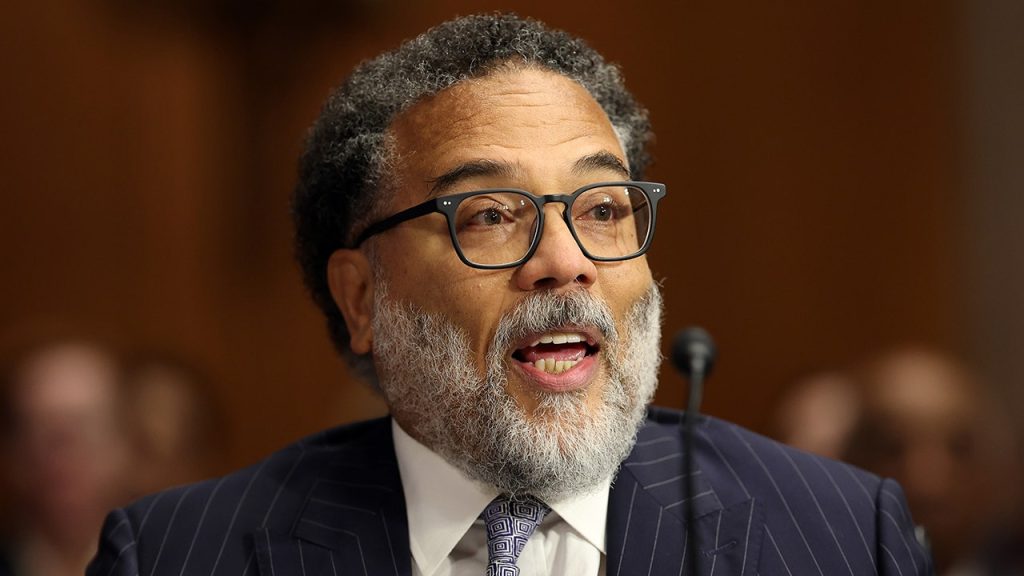Harry Coker, the outgoing national cyber director, has issued a stark warning about the increasing digital threats facing the United States and outlined a three-pronged approach to bolster the nation’s cyber defenses. He emphasized the need for increased funding, deregulation to streamline cybersecurity efforts, and a shift in hiring practices to prioritize skills over college degrees. Coker stressed the urgency of these measures in the face of relentless cyberattacks from adversaries like Iran, China, and Russia, which are increasingly targeting critical U.S. infrastructure.
Coker’s first point of concern is the need for increased funding for cybersecurity initiatives. While acknowledging the current pressure to reduce the federal deficit, he argued that cybersecurity must be prioritized within existing budgets. The increasing sophistication and frequency of attacks necessitate a commensurate investment in defensive capabilities, research and development, and workforce training. Without adequate funding, the U.S. risks falling behind in the cyber arms race, leaving its critical infrastructure vulnerable to debilitating attacks.
The second key area highlighted by Coker is the need to streamline and harmonize federal regulations related to cybersecurity. He pointed to the significant burden of compliance that cybersecurity professionals face, claiming that they spend a disproportionate amount of their time navigating regulatory requirements rather than focusing on actual threat mitigation. This bureaucratic overhead, he argued, hampers the effectiveness of cybersecurity efforts and diverts resources away from essential protective measures. Coker advocated for bipartisan legislation that would bring together stakeholders, including independent regulators, to streamline and harmonize these regulations, allowing cybersecurity professionals to focus on their core mission of protecting critical infrastructure.
Coker’s final point addresses the critical shortage of skilled cybersecurity professionals. He noted the nearly 500,000 unfilled cyber jobs across the nation and advocated for a shift in hiring practices, moving away from a rigid focus on four-year college degrees and towards a skills-based approach. This change, he argued, would significantly expand the talent pool by opening opportunities to individuals who possess the necessary skills but may not have the time or resources to pursue a traditional four-year degree. By prioritizing practical skills and experience, the government and private sector can tap into a wider pool of talent, filling critical cybersecurity roles and strengthening the nation’s cyber defenses.
Coker’s call to action comes amidst a backdrop of escalating cyberattacks, most notably the recently uncovered “Salt Typhoon” operation attributed to Chinese intelligence. This sophisticated attack breached nine major U.S. telecommunications companies, granting access to the private communications of senior government officials, political figures, and ordinary citizens. The hackers also gained access to sensitive information regarding Justice Department wiretaps, potentially compromising ongoing investigations and exposing U.S. counterintelligence efforts. This incident underscores the growing threat posed by state-sponsored cyber espionage and the urgent need to strengthen U.S. cyber defenses.
Beyond Salt Typhoon, China has been implicated in a series of other high-profile cyberattacks targeting U.S. government agencies and officials. These include a major breach of the Treasury Department, compromising unclassified documents and employee workstations, and the interception of communications belonging to Commerce Secretary Gina Raimondo, who plays a crucial role in shaping U.S. technology policy. These attacks demonstrate the persistent and aggressive nature of Chinese cyber espionage, aimed at gathering sensitive information, disrupting government operations, and gaining a strategic advantage. Coker’s recommendations, therefore, represent a crucial step towards addressing these growing threats and strengthening the nation’s cyber resilience. By prioritizing funding, streamlining regulations, and expanding the talent pool, the U.S. can better equip itself to defend against the escalating wave of cyberattacks targeting its critical infrastructure and sensitive information. The urgency of this situation cannot be overstated, and swift action is required to ensure the nation’s security in the digital age.

